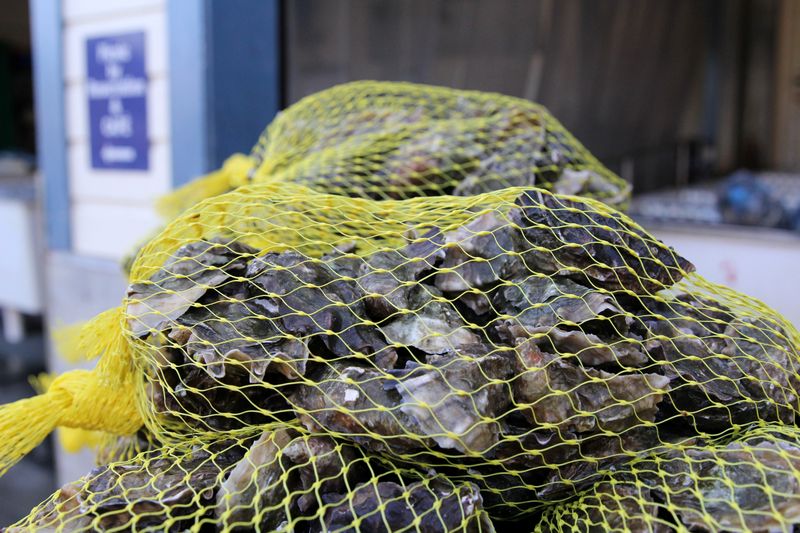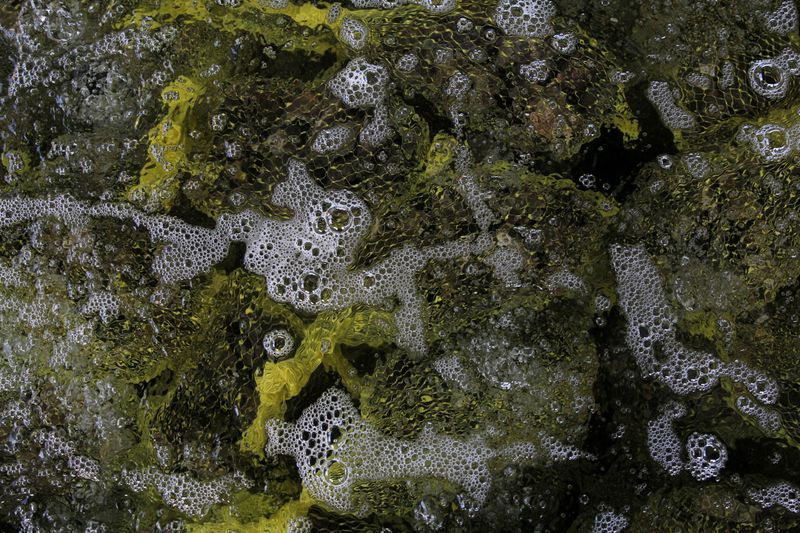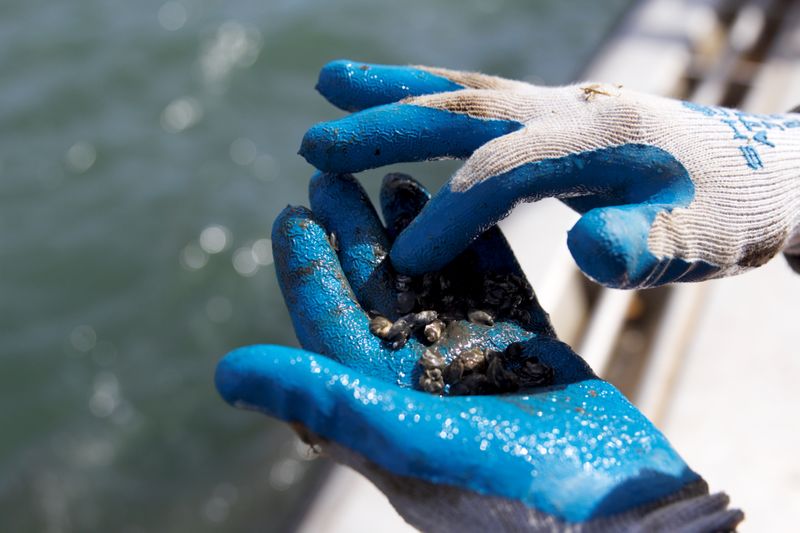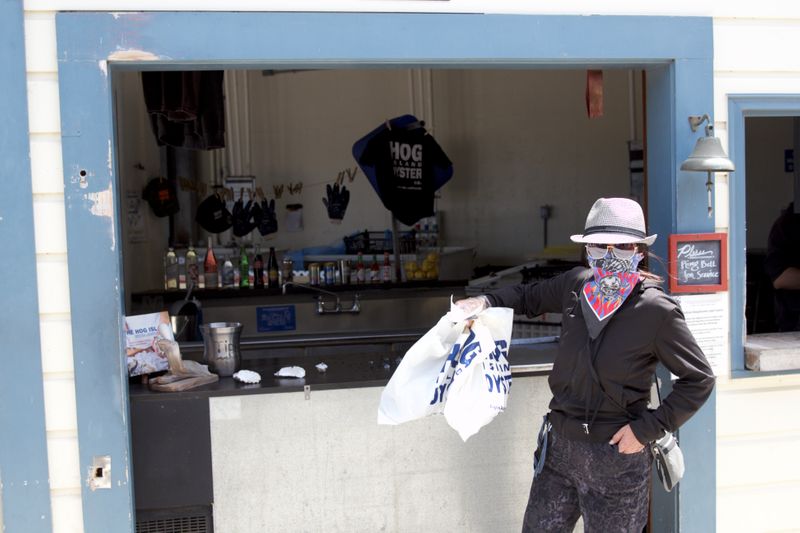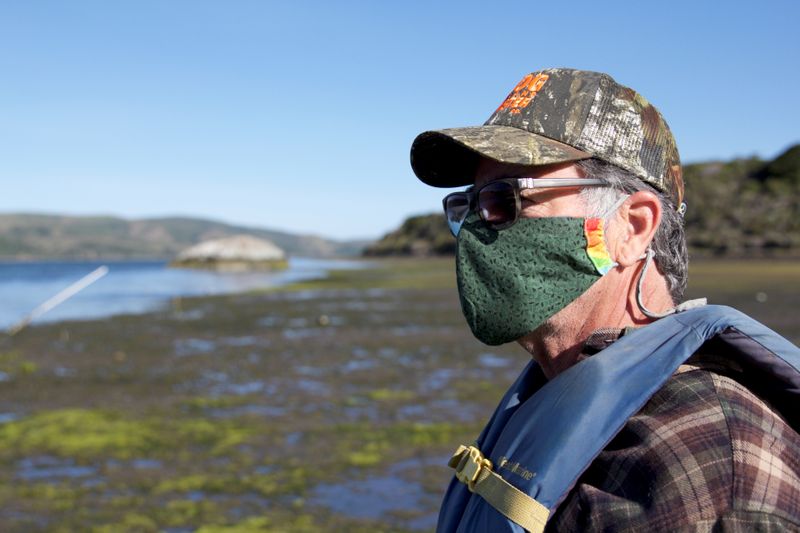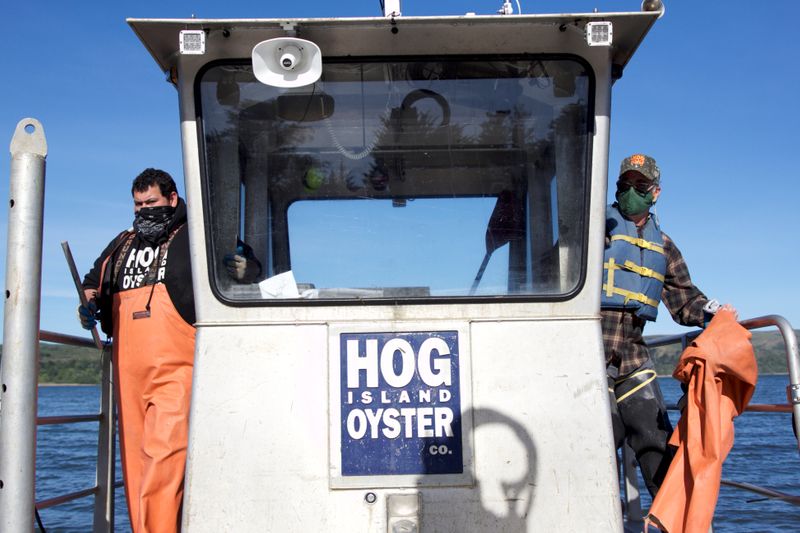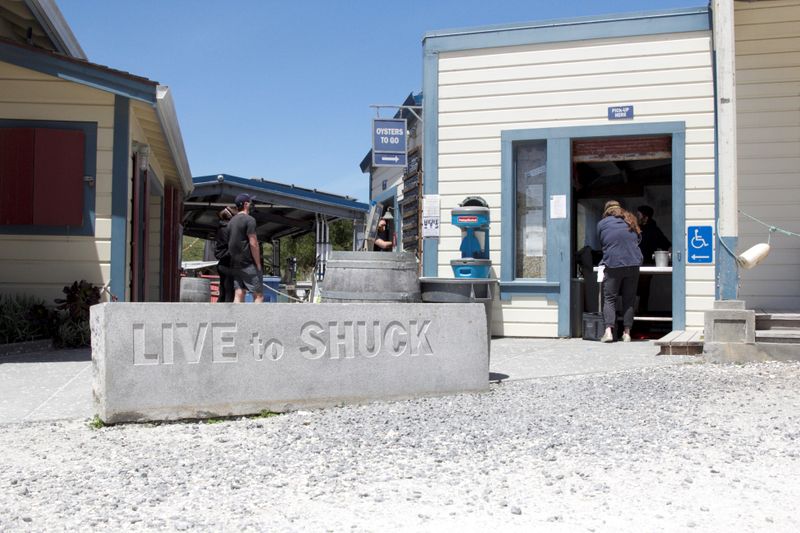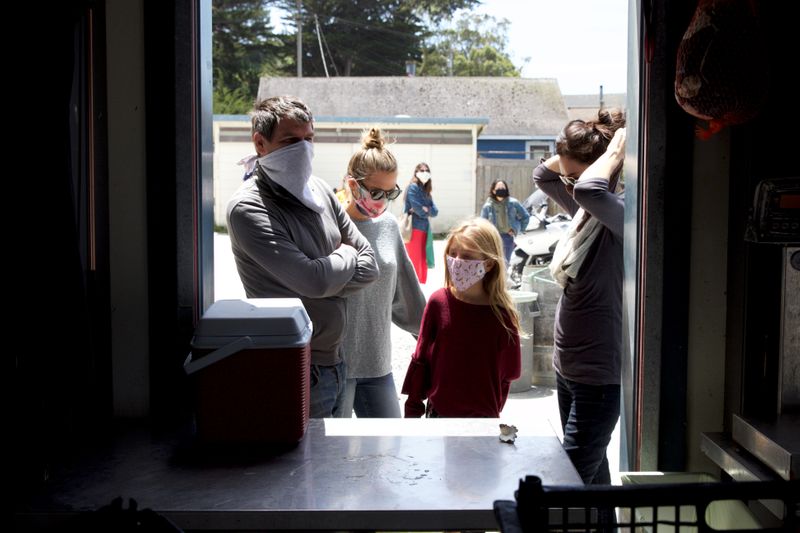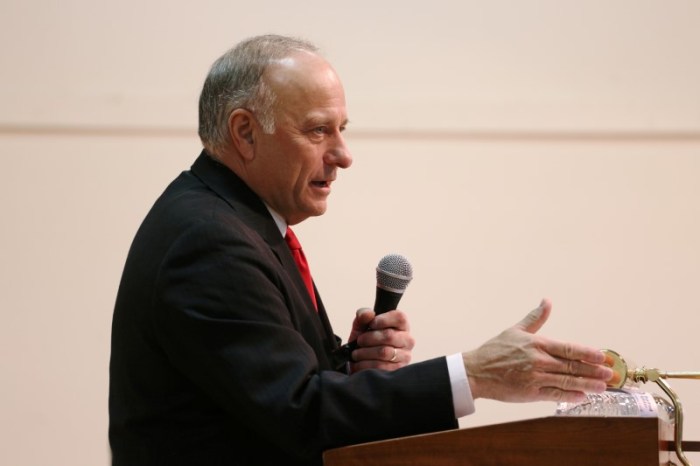MARSHALL, Calif. (Reuters) – While most businesses across the United States remained shuttered due to the coronavirus pandemic, Terry Sawyer, co-founder of Hog Island Oyster Co had plenty of work to stay busy.
Even though revenue at Hog Island has dropped by two-thirds since the beginning of the year, forcing pay cuts as well as employee furloughs, the water tanks at the northern California oyster farm continued to buzz and bubble with activity.
“When you have something that takes anywhere from a year to three years to get to market size once you plant it, you can’t just ignore it,” Sawyer said.
Hog Island, which leases 160 acres (64.75 hectares) scattered in four locations across the picturesque Tomales Bay, furloughed 90% of its more than 300 staff members across six eateries and a nursery. But the farm in the small bayside town of Marshall kept on a skeleton crew for farming maintenance.
Others in the aquaculture community were equally hard hit. A survey of members by the California Aquaculture Association found 91% of respondents had been “significantly impacted by COVID-19” with sales declines ranging from 50% to 95%.
Sawyer said work on the farm was necessary to maintain consistency in their oysters, which include sweetwater Pacific, the European flat, and Atlantic, among other varieties.
“If we can’t get out there to do this work, some of them will die because they’ve been too crowded. They’ll be misshapen,” Sawyer said.
With restaurants shuttered, Hog Island was forced to adapt. Their new Larkspur location, which opened in March, began with pickup orders.
The oysters, typically sold to Hog Island Oyster Co restaurants and other Bay Area eateries, are also available for purchase at their Marshall headquarters. Those sales have grown during the shelter order.
And as more businesses are permitted to re-open, Sawyer said he hopes to bring back staff.
Sawyer ultimately remains confident of the industry’s return.
“We enjoy preparing food. We enjoy producing food,” he said. “… that passion is still there.”
(Reporting by Nathan Frandino; Writing by Diane Craft; Editing by Bill Berkrot)

